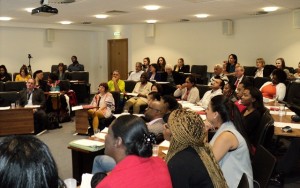
On October 14, local organisations, residents, staff and students from BU and other universities gathered at the Executive Business Centre for the Black History Month Soiree on Racial and Ethnic Diversity and Equality in Sport and Classical Music. The event was co-hosted by BU Equality and Diversity and Black British Academics, an independent organisation working to enhance race equality in the higher education sector.
Its founder and Chief Executive, Dr Deborah Gabriel, is a lecturer in the faculty of Media and Communication and she designed the programme to highlight the contribution Black academics make to the global knowledge economy, to showcase the fusion of practice and research for social change and to promote collaboration among staff, students and local organisations.
Dr Gabriel said: “My aim was to unite staff and students with local organisations to build engagement, promote co-creation in research and practice and collaboration on equality initiatives. I also think it’s important to acknowledge how Black academics are pushing the boundaries of knowledge while helping to build a fairer and more just society.”
Explaining why she chose sport and classical music as the theme for the event, Dr Gabriel said: “Football is the number one sport in Britain and issues around race and racism have been long-standing. Given that Bournemouth AFC have recently joined the Premier League, I think the focus is timely.”
Vincent Edwards from Bournemouth’s Kick-It-Out campaign spoke movingly about his 10-year campaign against racism in football and was joined by two teenage volunteers, who deliver anti-racism events in Bournemouth.
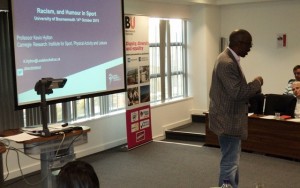
Kevin Hylton, Professor of Equality and Diversity in Sport from Leeds Beckett University (pictured left) shared narratives from Black and Asian football coaches extracted from his recent research on how humour is used to mediate against racial microaggressions.
Dr Gabriel delivered a presentation on pedagogies of social justice and cultural democracy, based on an evaluation of teaching materials and tailored workshops developed for a higher education institution to enhance race equality and inclusive teaching practice.
Dr Shirley Thompson, a reader in Music at Westminster University is a classical violinist and world famous classical composer, who in 2004 became the first woman in Europe to compose and conduct a symphony in the last 40 years.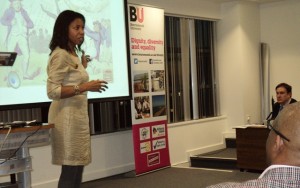
In her presentation, Heroines of the Opera: Democratizing the Art of Opera Writing and performance, Dr Thompson (pictured right) spoke about her creation of leading roles for females and developing stories around African Caribbean historical figures.
Carolyn Solomon-Pryce, Head of Equity, Diversity and Inclusion at the London School of Economics and Political Science said: “I am so pleased that I made the effort to attend what proved to be an insightful and thought provoking event.”
After the presentation, guests were treated to a Caribbean buffet while networking. Dr Gabriel used the occasion to discuss her upcoming research project on engagement with digital technologies by Black elders with local organisations, who expressed a keen interest in being involved.
David Corbin, Equality and Diversity Manager at Dorset Healthcare said the BHM Soiree was “an excellent and informative evening. There is still so much work to do in this field to get full recognition of the contribution Black people have made; not just to the UK but the world. There is still a lot to learn and by coming together in celebration, recognition and challenge – we can make a difference.”
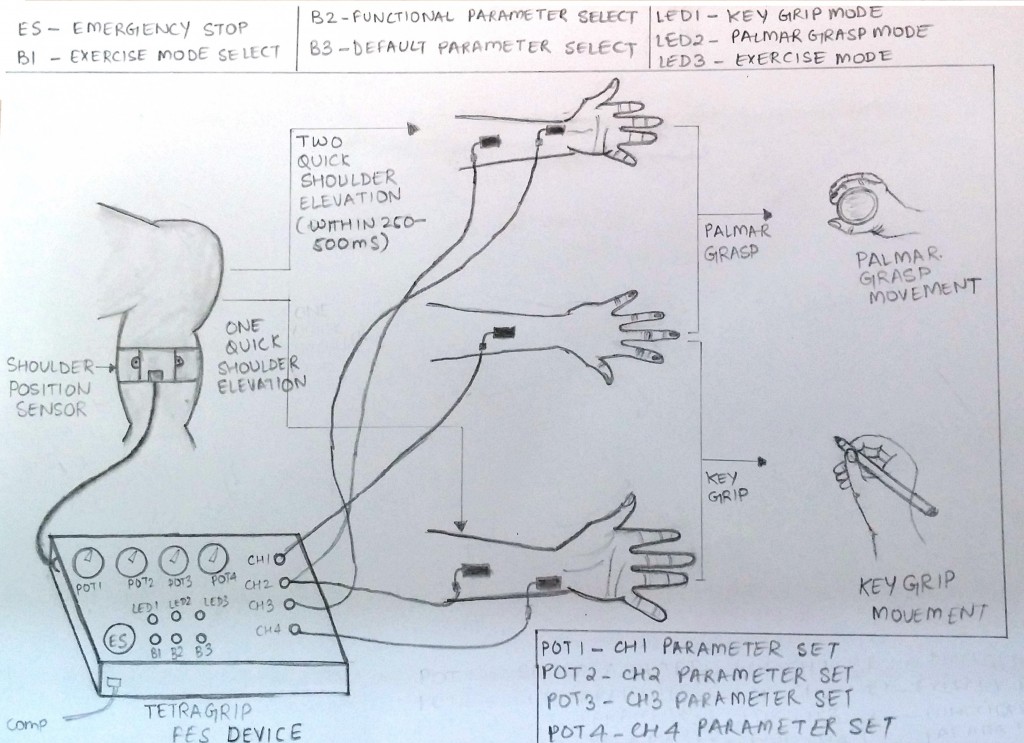
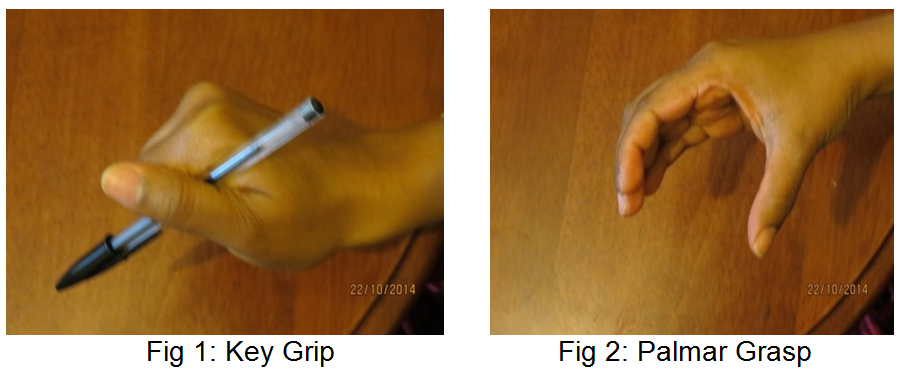



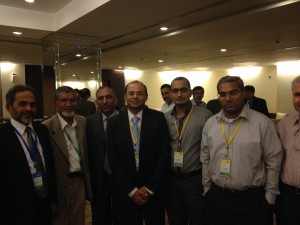
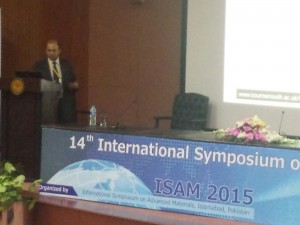
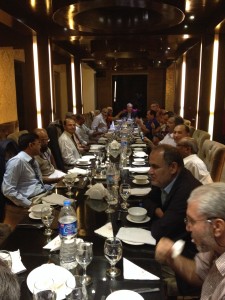
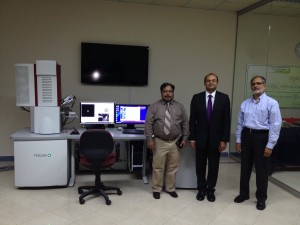
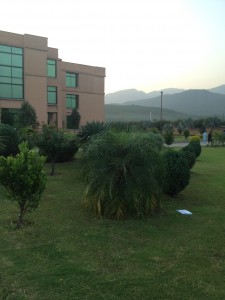 speaker and guest speaking at key universities and research institutes.
speaker and guest speaking at key universities and research institutes.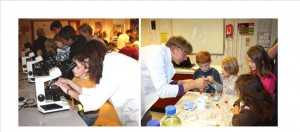



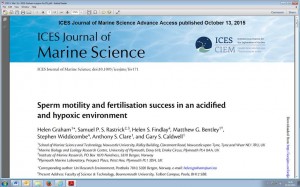
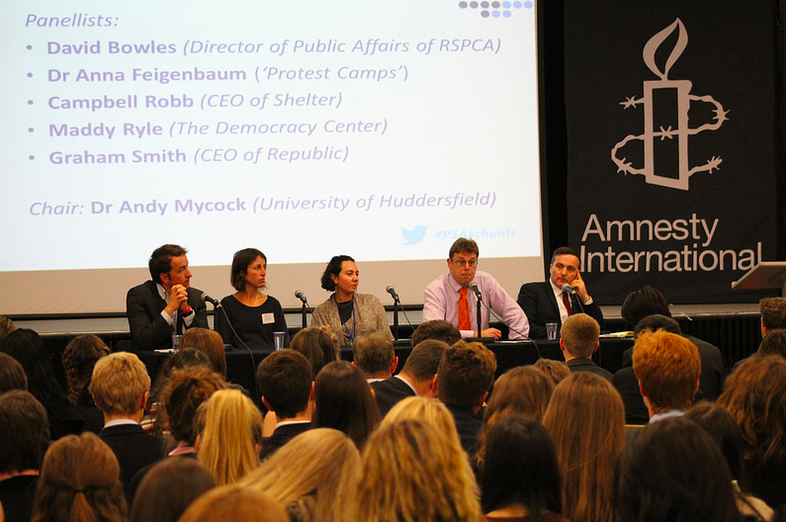

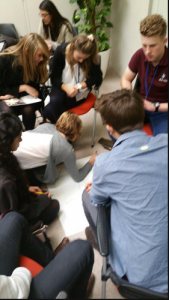
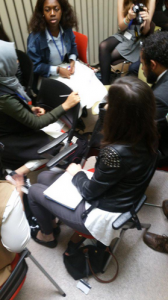
 of his participation in the event, Dr. Jackson – who also convenes the
of his participation in the event, Dr. Jackson – who also convenes the 

 Professor Jill Atkins of Henley Business School at the University of Reading will speak to the first of a new series of staff research seminars organized in the Faculty of Management on Wednesday, October 14, at 15:00 at Bournemouth House, BG14. Her topic, “Exploring rhinoceros conservation and conversation: The emergence of emancipatory accounting for ‘extinction’,” links problems of sustainability of natural resources with theoretical developments that seek to take better account of the environment.
Professor Jill Atkins of Henley Business School at the University of Reading will speak to the first of a new series of staff research seminars organized in the Faculty of Management on Wednesday, October 14, at 15:00 at Bournemouth House, BG14. Her topic, “Exploring rhinoceros conservation and conversation: The emergence of emancipatory accounting for ‘extinction’,” links problems of sustainability of natural resources with theoretical developments that seek to take better account of the environment.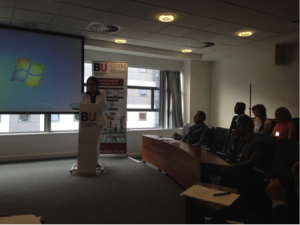
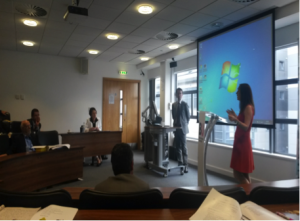


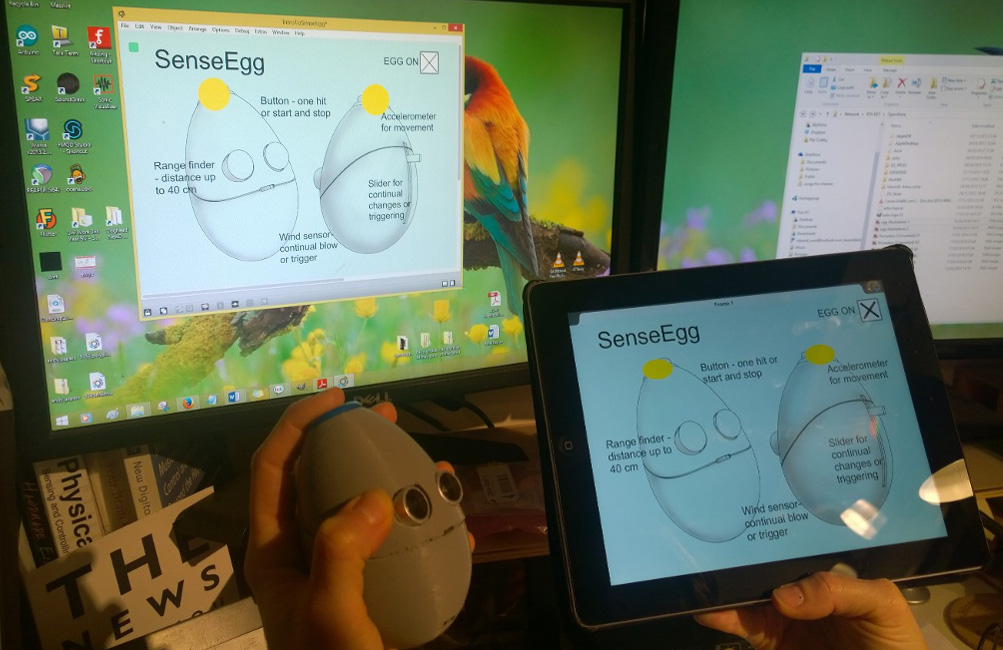











 April’s Café Scientifique – Should we help machines understand and respond to our emotions?
April’s Café Scientifique – Should we help machines understand and respond to our emotions? Postgraduate Research Experience Survey (PRES) 2024 – 2 WEEKS LEFT
Postgraduate Research Experience Survey (PRES) 2024 – 2 WEEKS LEFT Working with The Conversation: online training session – Wednesday 8th May
Working with The Conversation: online training session – Wednesday 8th May Apply for up to £1,000 to deliver an event and take part in a national festival of public engagement with research
Apply for up to £1,000 to deliver an event and take part in a national festival of public engagement with research MSCA Postdoctoral Fellowships 2024
MSCA Postdoctoral Fellowships 2024 Horizon Europe News – December 2023
Horizon Europe News – December 2023